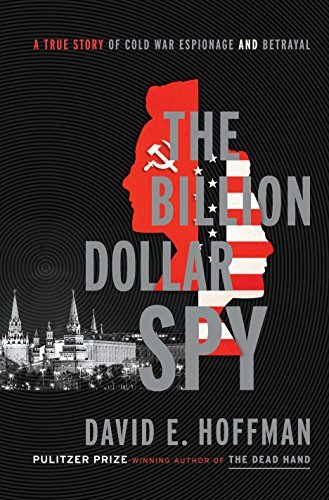
The Good Spy: The Life and Death of Robert Ames
Book Description
Ames was a legend, a master of intelligence in a world shrouded in secrecy and danger. With a charisma that could bridge divides, he navigated volatile politics and forged unlikely alliances in the heart of the Middle East. Yet, his life was a high-stakes game where trust was a luxury and betrayal loomed at every corner. As tensions escalated and crises erupted, a shadowy threat closed in on him. The clock was ticking, and the stakes were rising. What happens when a good spy becomes the ultimate casualty in a war with no end?
Quick Book Summary
"The Good Spy: The Life and Death of Robert Ames" by Kai Bird chronicles the remarkable career and tragic fate of Robert Ames, a CIA officer whose intelligence work shaped American involvement in the Middle East. Known for his sensitivity and intuition, Ames forged deep relationships with influential Arab leaders, becoming one of the few American officials trusted by the region’s power brokers. Bird details Ames’s efforts to build bridges during periods of escalating conflict, often at great personal risk. Ames’s legacy is defined by his pivotal role in diplomatic backchannels and his unwavering integrity, yet ultimately, the volatile environment would have fatal consequences. The book is a deeply human portrait of espionage, dedication, and sacrifice against the backdrop of ongoing geopolitical turmoil.
Summary of Key Ideas
Table of Contents
Building Bridges Across Cultural Divides
Robert Ames emerged as a unique figure in American intelligence, distinguished by his ability to genuinely connect with Middle Eastern leaders during a tumultuous era of the Cold War. Unlike many of his contemporaries, Ames believed in the power of direct engagement and mutual respect, transcending linguistic and cultural barriers. His approach not only enhanced the United States’ understanding of the complex dynamics in the Middle East but also allowed for opening crucial lines of communication with figures otherwise considered unreachable. This talent for relationship-building became the cornerstone of his effectiveness and influence in shaping American policy.
The Perils and Ethics of Espionage
However, the blood-soaked history of the Middle East presented constant dangers. Ames worked in a domain where shifting loyalties and betrayals were not just occupational hazards, but the very fabric of day-to-day operations. The book explores the moral and ethical challenges facing those who operate in the shadows of international affairs, illuminating instances where Ames had to navigate ambiguous situations, balancing his personal convictions with the often ruthlessly pragmatic demands of espionage. Bird shows how Ames’s ethical compass set him apart, making his successes—and ultimate vulnerability—all the more profound.
Personal Sacrifice Amid Geopolitical Conflict
Ames’s personal story is marked by sacrifice, both for himself and his family. The relentless demands of his work meant prolonged separations and perpetual risk, casting a long shadow over his private life. Ames’s devotion to fostering peace and understanding within a region locked in cycles of violence came at the cost of personal happiness and security. Yet, he persisted, driven by an unwavering belief that quiet diplomacy and personal connections could avert catastrophe—demonstrating the human cost of covert service.
The Power of Trust and Relationship-Building
Trust is a recurring theme that underpins every facet of Ames’s career. His relationships with Arab leaders like Ali Hassan Salameh reflect an extraordinary level of mutual faith that was rare between American operatives and their Middle Eastern contacts. Such trust not only advanced intelligence objectives but also contributed to broader diplomatic efforts. At the same time, the perilous balance of trust and deception defined intelligence work, with devastating results when violated. Bird’s narrative underscores the fragility of these relationships, especially under the constant threat of violence.
The Lasting Impact of Loss in Intelligence Work
The fatal 1983 bombing of the US embassy in Beirut, which claimed Ames’s life, serves as the book’s emotional and historical climax. Through Ames’s death, Bird examines the enduring costs of perpetual conflict and the impact of losing dedicated, principled intelligence officers. The aftermath of his passing reverberated throughout the intelligence community, highlighting the sobering reality that, amidst grand geopolitical struggles, individual acts of courage and humanity can be both vitally significant and heartbreakingly vulnerable. "The Good Spy" ultimately pays tribute to Ames’s legacy and the ongoing complexities of US engagement in the Middle East.
Download This Summary
Get a free PDF of this summary instantly — no email required.





